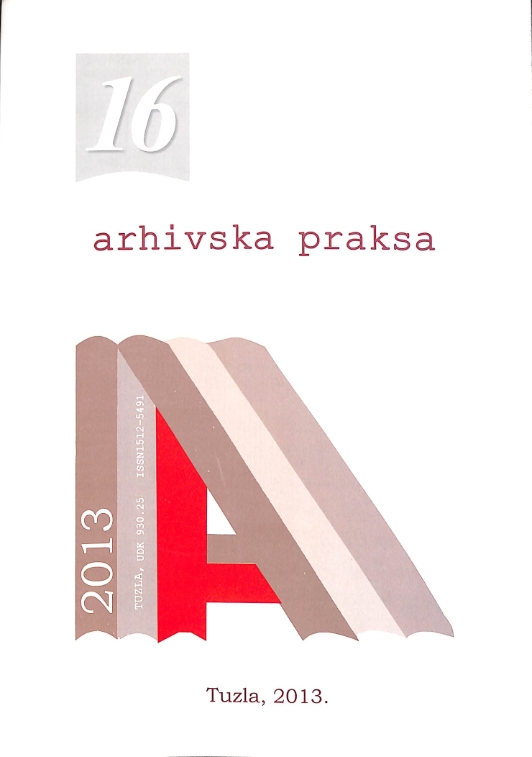Obrazovanje djelatnika u pismohranama iskustva hrvatskih arhivista
Education of employees in registries – experiences of croatian archivists
Author(s): Darko RubčićSubject(s): Archiving, Education and training
Published by: Arhiv Tuzlanskog kantona
Keywords: Foreign Service; registry; archives; education; classification; sorting; valuation; availability; primary care;
Summary/Abstract: Observing the training of employees in archives (record offices) in the last fifty years, we can conclude that great steps have been taken in primary care of written heritage. A significant shift was made in 1988., when the Regulation on the qualification examinations of employees on protection of archival and current records outside the archives were enacted. The new version of this Regulation (from the year 2004.) created a revolution in additional education of employees working in archiving (in the primary care of the records). The Regulation was the tool that archivists did not have, until then. Archivists finally had a legal basis which enabled employers to realize that protection of documentation is in their own interest. In order to protect their own interests, they had to protect their own documentation, their own information. The most efficient way of protection was by way of educating their own staff. By organizing seminars, archivists were, through presentations, raising the awareness of the importance of work done by employees in charge of the archives(record offices), registries, electronic information etc. The success of the protection of written heritage in the making is directly related to the transference of expertise and conviction of the importance of keeping documentation from archivists to their colleagues in the field. I shall point out some information as an undeniable fact, which confirms the accuracy of the previous work. From 1993 to 2012, after the attended course, 2579 candidates passed the exam (according to official records of Croatian State Archives). The result is that categorized creators regularly submit to responsible archival institutions records regarding their documentation. Also, they, to a large extent, have rules of procedure with documentation and records schedules, and the documentation is submitted to archival institutions mostly arranged and listed. Such work has enabled us archivists to raise the level of our work, provide a higher quality product and service to our clients (analytical inventories, thematic guides, accessibility, electronic media etc.) Our task is not yet finished, it has just begun. We have to struggle for regular education for us and our colleagues in the field.
Journal: Arhivska praksa
- Issue Year: 2013
- Issue No: 16
- Page Range: 151-156
- Page Count: 6
- Language: Bosnian, Croatian, Serbian

